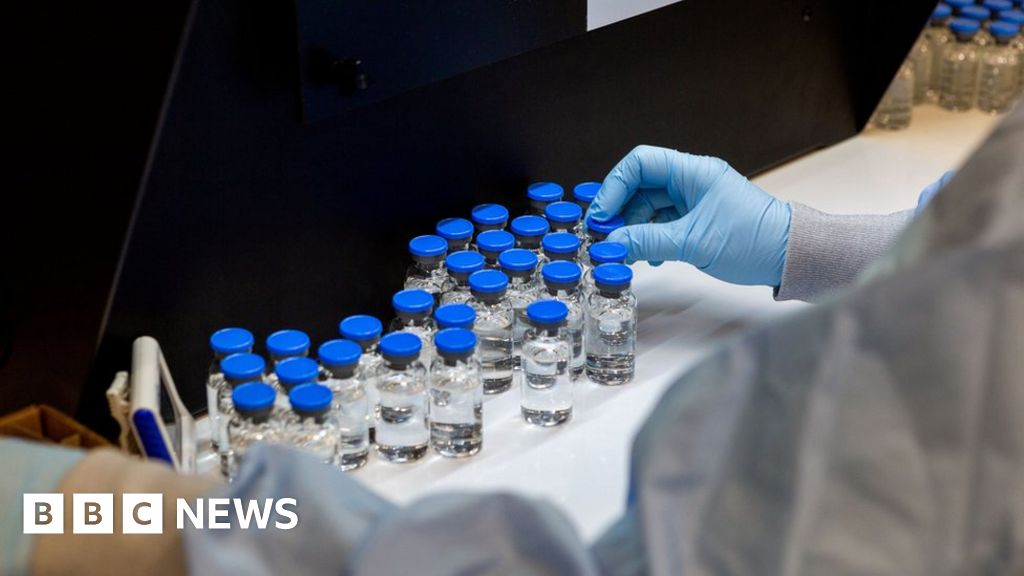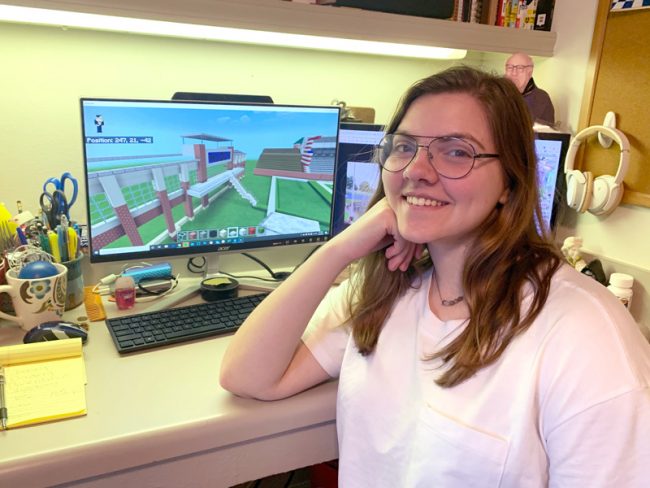Experts Matter. Find Yours.
Connect for media, speaking, professional opportunities & more.

As the race for the White House continues, speculations are growing on who former Vice President Joe Biden will have as his running mate. As of late, the direction Biden is being shown is to choose a woman of color. After a devastating start to the Democratic primary, Biden’s campaign was revived when black voters in South Carolina and throughout the south overwhelmingly sided with him. Now that he is the presumptive Democratic nominee, black voters and leaders are pressing for him to pick a black woman as his running mate. Biden launched a committee last week to begin vetting possible candidates for the vice presidency, a process he has said will likely last through July. He has already committed to picking a woman. But black voters and leaders say he needs to go further and pick a black woman. They argue that Biden’s success – and that of the Democratic Party as a whole – depends on black people turning out to vote in November. They want a tangible return for their loyalty to the democratic party. Political analysts like Augusta University Political Science Professor Dr. Gregg Murray say Sen. Kamala Harris from California and former Georgia governor candidate Stacey Abrams are the two standout choices that fit this bill. Although Harris and Abrams each bring positives to Biden’s campaign, Murray says they both have some baggage. “Harris is respected in the senate and including Abrams on the ticket could help the Democrats penetrate the traditionally GOP voting south,” said Murray. “However, Harris has an unfavorable record among critics of criminal justice reform and Abram’s lost in Georgia’s governor’s race raises questions on her electability beyond her home territory. I’m sure Biden’s team will consider all the facts before making their final decision.” As campaigns need to revamp and reconsider strategy in an election run in the wake of a pandemic, getting the ticket in order might come sooner than later. And if you are a reporter covering this topic, then let our expert help. Murray, professor of political science at Augusta University, is available to talk about the upcoming election. Murray’s research focuses on political behavior and psychology with specific interests in voter mobilization and turnout. He is also executive director of the Association for Politics and the Life Sciences. He has been featured on CNN and is a go-to for national media covering campaigns. Click on his name to request an interview.

Covering Remdesivir – Contact an expert from Cedarville first
There has been a lot of talk about treatment, vaccinations and drugs that are being used during the CVOID-19 pandemic. The latest is Remdesivir – and it is getting a lot of attention. The US's Food and Drug Administration (FDA) has authorised emergency use of the Ebola drug remdesivir for treating the coronavirus. The authorisation means the anti-viral drug can now be used on people who are hospitalised with severe Covid-19. A recent clinical trial showed the drug helped shorten the recovery time for people who were seriously ill. However, it did not significantly improve survival rates. Experts have warned the drug - which was originally developed to treat Ebola, and is produced by Gilead pharmaceutical company in California - should not be seen as a "magic bullet" for coronavirus. What do we know about remdesivir? The drug did not cure Ebola, and Gilead says on its website: "Remdesivir is an experimental medicine that does not have established safety or efficacy for the treatment of any condition." Gilead also warns of possible serious side-effects. However, President Trump has been a vocal supporter of remdesivir as a potential treatment for the coronavirus. In its clinical trial, whose full results are yet to be released, the US National Institute of Allergy and Infectious Diseases (NIAID) found that remdesivir cut the duration of symptoms from 15 days down to 11. The trials involved 1,063 people at hospitals around the world - including the US, France, Italy, the UK, China and South Korea. Some patients were given the drug and others were given a placebo (dummy) treatment. Dr Anthony Fauci who runs NIAID, said that remdesivir had "a clear-cut, significant, positive effect in diminishing the time to recovery". However, although remdesivir may aid recovery - and possibly stop people having to be treated in intensive care - the trials did not give any clear indication whether it can prevent deaths from coronavirus. May 02 - BBC There are still a lot of questions to be asked: When could it be ready for mass distribution? How is it administered? Who can get it? And how much will it cost? If you are a journalist covering this emerging issue – then let our experts help. Dr. Zach Jenkins is an infectious disease expert at Cedarville University. He is available to speak with media about this topic – simply click on his icon to arrange an interview.

Why is expertise marketing important?
The web is being reorganized around expertise. To combat fake news, Google has released the EAT (Expertise, Authority and Trust) and BERT (Bidirectional Encoder Representations from Transformers) algorithms that prioritize results attributed to verified experts. Other major tech platforms are rapidly following-suit. Businesses that showcase their expertise online in the proper digital format, will benefit with increased lead generation, greater organic reach and boosted media pickup. Eli Singer, CEO Experts.Inc After a quick analysis of your content footprint by our team we will be able to quantify the impact of an expertise marketing program on your search rankings and lead-generation. About Experts.Inc Experts.Inc is focused on radically growing the profile of subject matter experts at Fortune-100 companies. We deliver leads, global media and boosted search rankings - all without investments in media or social content. Experts.Inc is the first Official Partner Reseller of the ExpertFile software platform.

Step aside Walking Dead – There’s another leading TV show being shot in Georgia now
When location scouts for NBC’s new television series “Council of Dads” combed Savannah for a realistic venue to shoot multiple hospital scenes, they knew they had found something special in the Health Professions Academic Building on Georgia Southern University’s Armstrong Campus. “I set up a visit, came and looked at it and I was floored,” said “Council of Dads” location scout and Armstrong Campus alumnus Anthony Paderewski. “I couldn’t believe it. Basically, you have a backlot for a TV show here. It was absolutely perfect for what we were looking for. So that being said, I went and I talked to the producers and I got some pictures. When I showed the pictures everyone was blown away.” “Council of Dads,” which premiered March 24 and now airs on Thursdays, is based on the book by Savannah native Bruce Feiler, and developed by former “Grey’s Anatomy” showrunners Tony Phelan and Joan Rater, who also serve as executive producers on the series. The story follows Scott Perry, a father of five who, after receiving a cancer diagnosis, asks a group of friends to step in as father figures to his children in the event that he isn’t around to see them grow up. “It’s an emotional family drama,” explained “Council of Dads” co-executive producer and producing director Jonathan Brown. “The idea is to try and be as real as possible. And the show is telling the story of a family and what it means to be a family in this day and age. It’s not just blood. The definition of family is growing, broadening with the types of relationships that are now included in a family. This is the story of one of those families that is made up of blood relationships, friendships, adoption and all those different kinds of things.” The show filmed almost entirely on location in the Savannah area for five months. Several of the scenes take place in a hospital, and the set has to be believable, multifaceted and offer the right aesthetic for television. Primarily, the true-to-life setting allows the University to provide exceptional education and training opportunities to help students succeed while addressing the healthcare needs of the region. The Waters College of Health Professions, housed in the Academic Building and Ashmore Hall, is the largest undergraduate health sciences college in the state of Georgia, and the University’s allied healthcare programs represent almost one-fifth of all undergraduate healthcare degrees earned in Georgia. “The use of the Health Professions Academic Building is validation that we are training our students for real-world health care settings,” said Barry Joyner Ph.D., dean of the Waters College of Health Professions. “The goal for the building was to simulate a hospital setting, and we have accomplished that.” Are you a journalist looking to cover this topic or learn how Georgia and Universities like Georgia Southern are working with film and television industries – the let us help with your stories. Barry Joyner is the dean of the Waters College of Health Professions at Georgia Southern University and is available to talk about this latest project on campus – simply click on his icon to arrange an interview today.

Voice teachers and singers are facing an avalanche of questions while planning how to return to “normal operations” as restrictions ease from the COVID-19 pandemic. Singers generally expel more breath and saliva than normal talkers, so are their social distancing requirements different than most? If public health officials require six feet of separation at all times, how does a choir practice and perform? If voice lessons have to be done remotely, how can tone and pitch be properly evaluated via an internet connection? These are just some of the dilemmas facing voice teachers and music professors. “We are highly concerned in the arts related to how we deal with teaching when we return to campuses, classrooms and studios, particularly with singing,” said Allen Henderson, executive director of National Association of Teachers of Singing (NATS) and professor of voice at Georgia Southern University. “Singers are what we might call super-emitters — in terms of what is expelled in a breath. What kind of precautions do we need to take?” To help start answering such questions, Henderson and NATS organized a webinar called “A Conversation: What Do Science and Data Say About the Near-Term Future of Singing?” It is scheduled for Tuesday, May 5, at 5 p.m. He said within 24 hours of the webinar’s announcement, more than 2,000 people had signed up. “I was able to secure one of the major researchers on aerosolization of viruses,” Henderson said. “I suspect there will be a lot of higher education arts administrators in attendance and the information shared will be used widely in formulating responses to the unique problems of teaching music when reopening occurs.” Henderson noted that when the country shut down, the process was fairly quick and uniform. As organizations such as universities make plans to return to ‘normal’ operations, leaders will likely have to develop their own plans unique to their settings. “It will be complicated, and it’s about what protocols institutions and individuals have in place in regard to testing and contact tracing so that there’s a sense that we are creating as safe an environment as possible,” Henderson said. “Our job is to arm our colleagues with the best possible science-based information we can.” To learn more about the upcoming webinar, simply visit the story attached:

No graduation – no problem. See how one Georgia Southern senior took care of her ceremony online
For many, this spring was to be a milestone commemorating many years of hard work and dedication. Graduating from university is the official step into adulthood and the achievement of academic excellence. But this year is different. COVID-19 is either restricting celebrations or cancelling them outright. For some students, it is a disappointing moment. Others, like Rebecca Hooper, a senior marketing major at Georgia Southern University, saw an opportunity to innovate. On Tuesday, March 17, during spring break, Georgia Southern announced the cancellation of its in-person Spring 2020 Commencement ceremonies for Statesboro and Savannah. Since that time, the University has announced an online ceremony for graduates on May 8 and 9 and hopes to be able to hold a rescheduled in-person ceremony on or before commencement in December. As the news broke, Hooper and her friend were playing Minecraft, a sandbox video game which allows users to create digital worlds where they can build as many landscapes and structures as they like. As they played the game and chatted online, Hooper had what seemed like a crazy idea. “I was like, ‘Wouldn’t it be cool if we built the stadium?’ I just said it as a joke at first, but then the next day rolled around and I started on it. And then it kept on going and going and I couldn’t stop,” she said. Two days later (and more than eight hours of digital construction), Hooper had created Glenn Bryant Field and the home side of the stadium. She also built a commencement stage complete with a jumbotron that said, “Hail Southern! One More Time!” Knowing that no ceremony would be complete without Freedom’s Flight, Hooper added “Freedom” on the stage. However, the closest thing she could find to the University’s bald eagle mascot was a green parrot, who let out a little squawk and bobbed up and down. Hooper posted a flythrough of the stadium on Twitter, with a comment that said, “GSU said no graduation in Paulson. I said Minecraft graduation in Paulson #HailSouthern.” The response was immediate and overwhelming. Hooper has big plans for her virtual stadium. She’s planning on doing some online tours through Twitch, a video game playthrough app. She’s also invited her friends to help her finish building the stadium, complete with Bishop Fieldhouse, press boxes, sky boxes, and the large parking lot where she hopes to invite people to build their own virtual tailgating structures. If you are journalist and would like to know more about this story - simply reach out to Georgia Southern Director of Communications Jennifer Wise at jwise@georgiasouthern.edu to arrange an interview.

What are strategies for marketing experts?
Expertise Marketing is an advanced and versatile form of content marketing, with strategies that are adaptable to many different contexts. Your organization’s experts have the potential to dramatically expand your digital footprint using your existing approved content, growing your brand’s profile, and gaining access to valuable leads and media inquiries. Who are your Experts? Use the Expertise Marketing Matrix to map your portfolio of experts and the marketing opportunities. Amplify - Supercharge the exposure of your leading experts by amplifying their existing profiles and content into the AP, Google, Dejero and other major indexes via ExpertFile.com Drive Exposure - Your experts are your undiscovered gems. Turn 20, 200 or 2,000+ of your employee experts into brand builders at scale. Have their natural expertise draw interest, without the need for social media engagement or content. Content Performance - These experts face tough competition for attention and often comprise local experts, advisors or salesforces. For this group, Expertise Marketing manifests as a very deep SEO best practice that can be deployed at scale and integrated with an owned website to drive attention and leads. Ignore or Discover - This segment may be home to hidden talent; try to find and nurture it when possible. Otherwise, ignore this segment as the expertise marketing opportunity is elsewhere. About Experts.Inc Experts.Inc is focused on radically growing the profile of subject matter experts at Fortune-100 companies. We deliver leads, global media and boosted search rankings - all without investments in media or social content. Experts.Inc is the first Official Partner Reseller of the ExpertFile software platform.

Forecasting demand of any product for industry, manufacturing and even retail is already a difficult task. And now, amid a global pandemic that has seen some industries grind to a halt while others ramp up to keep up - means that measuring expectations about demand is key to corporate survival during these trying times. We have not experienced a global pandemic like the coronavirus in last 100 years. The sheer increase in demand for everyday necessities like toilet paper, sanitary wipes and bottled water is putting undo stress on a lean global supply chain. It is testing the agility of many retailers and consumer packaged goods (CPG) companies as they attempt to ramp up manufacturing facilities and logistical operations while struggling to keep up with consumer demand. Business executives are looking to data, analytics, and technology for answers on how to predict and plan for the surge and, ultimately, the decline in consumer demand. It is significantly easier to shut down facilities than it is to quickly boost production and capacity. The biggest unknown is whether there will be a delayed economic recovery or a prolonged contraction. Regardless of the outcome, retailers and their CPG suppliers will need to think ahead and be prepared to act quickly. March 25 – RIS News There are so many angles and aspects of our daily life that need to be covered during the COVID-19 outbreak – and if you are a journalist looking at how business and industry are adapting during this crisis, the let our experts help. Dr. Karen Sedatole is the Goizueta Advisory Board Term Professor of Accounting. She has conducted extensive research on forecasting and capacity management that can shed light on the challenges of responding to the current uncertain environment. Karen is available to speak with media – simply click on her icon to arrange an interview today.

Does gender matter when it comes to COVID-19?
As America begins to adapt and adjust to the COVID-19 pandemic, details are emerging about who is more susceptible to the virus and why. The latest is gender. In fact, as some are observing, it seems men are more likely to fall victim to COVID-19 than women. A report published by the New England Journal of Medicine showed men not only made up 60% of the first 393 COVID-19 patients admitted in two New York City hospitals, but they were the highest group placed on ventilators. Another study of people hospitalized in the United States for COVID-19 in March similarly found that “males may be disproportionately affected by COVID-19 compared with females.” “The higher risk of COVID-19 among men we are seeing in New York City may be consistent in other US regions, including the southwestern Georgia area that has been disproportionately affected by COVID-19,” says Dr. Justin Moore, an assistant professor in the Department of Population Health Sciences in the Medical College of Georgia at Augusta University. “Researchers are still looking into why men, specifically African American men, are seemingly more susceptible to the virus. However, we know this may be due to underlying health issues, including hypertension, obesity and diabetes.” It’s a startling detail and one that needs to be communicated. If you are a journalist covering COVID-19 and how men may be more vulnerable than women during this crisis – then let our experts help. Dr. Justin Moore is an expert in spatial epidemiology and an associate professor at the Institute of Public and Preventive Health at Augusta University. He is available to speak with media regarding this topic – simply click on his icon to arrange an interview.

Scapegoating During Pandemics Has Always "Plagued" Humanity
Though it was widely known that the first known cases of coronavirus could be traced back to Wuhan in China, many Americans were shocked and saddened to hear President Donald Trump repeatedly calling the illness the "Chinese virus" during a news conference in March. Though President Trump has insisted it's "not racist at all," Asian-Americans have reported incidents of slurs and physical abuse over the perception that China caused COVID-19. Rev. Joseph Ryan, OSA, PhD, teaches a course on the history of disease, with a focus on the bubonic plague, and notes that this type of xenophobic hysteria is not new when it comes to pandemics. “A theme that we can see with these epidemics is hysteria and the scapegoating of people who are liminal and have no defenders,” says Fr. Ryan. “We also see nativism and xenophobia evident in people's response to epidemic illness. Pandemics test the humanity of human populations and sometimes we are inhumane in the face of the fear of death from such diseases.” Here are a few examples from history of how humanity shifts blame during times of great pandemic-related stress: 1348: The Bubonic Plague A third of Europe's population was eliminated by this epidemic, which spread along trade routes. The event caused different expressions of hysteria among Europeans, including the persecution of the Jewish community. 1832: Cholera Like the bubonic plague, cholera traveled along trade routes. In the United States, Irish immigrants were scapegoated. 1918: Spanish Influenza It gained its name because the first journalists to talk about the disease were from Spain. Influenza came from Kansas and spread through the transport of American soldiers to Europe to fight in the First World War. Later, it traveled to British colonies in India and Africa via the transport of British troops, and the result was the rise of independence movements in these countries. 1980s: HIV/AIDS The HIV/AIDS crisis caused hysteria surrounding gay men. 2014: Ebola Another event that sparked hysteria was the recent outbreak of Ebola in West Africa. The governors of New York and New Jersey threatened to close their airports, though there was little chance of the virus breaking out in the United States. (To the best of Fr. Ryan's knowledge, only two Americans developed the disease.)






